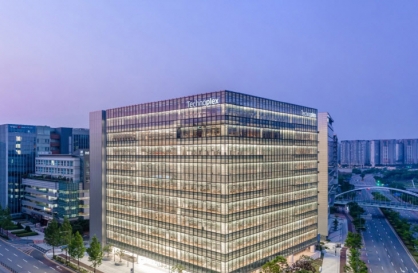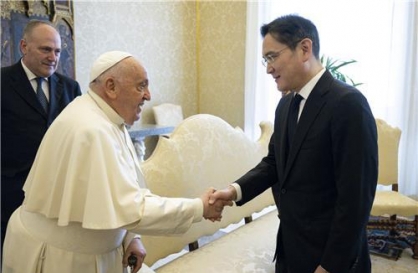Recently the South Korean Ministry of Justice announced that it was considering the adoption of a comprehensive anti-discrimination law. The impetus behind this announcement was a series of recommendations by the United Nations Human Rights Council contained in the 2012 Report of the Working Group on the Universal Periodic Review of South Korea adopted in October. Since that time the Ministry of Justice has been reviewing the 70 recommendations contained in the second section of that Report and has now decided to fully adopt 42 of those recommendations while maintaining a variety of reservations as regards the remainder.

However, while the Ministry and South Korea should be commended on the planned full adoption of the majority of the recommendations and it is promising that the adoption of an anti-discrimination law is being “actively considered,” the real question is why so many of the recommendations are not considered acceptable. An analysis of the rejected recommendations and the reasons behind the rejections raises a strong concern as to whether South Korean leaders will ever learn to lead South Korea out of its xenophobic past and into the 21st century.
This concern exists because the recommendations that the Ministry deems acceptable generally involve issues that benefit either ethnic South Koreans or all residents of South Korea, while those that are being rejected or “considered further” are those that primarily benefit non-ethnic South Koreans, minority groups and foreign residents. While it is commendable that provisions on corporal punishment, human trafficking, sexual violence against children and protection of adopted children are approved, it is unfortunate that the leaders of South Korea continue to cite “the opinions of the civil society” and “public consensus” when it comes to issues involving migrant workers and other anti-discriminatory provisions.
And while it is an underlying premise of the modern nation state that governments work on improving the welfare of their own citizenry, it is unfortunate that the leaders of South Korea still regard improving the status of non-ethnic Koreans and foreign residents as anathema to that agenda.
Thus when over 20 countries expressed concern over South Korea’s failure to adopt international conventions protecting migrant workers and their families, the South Korean leaders promised to carefully consider these issues, but that before any concrete steps would be taken “social consensus” would be required.
When other countries expressed concern over South Korea’s policy on HIV testing of low-risk foreign workers, the government responded that such issues again were a matter of “public opinion.” And while the current de facto abolitionist status of South Korea as regards to the death penalty was praised, the government again responded to the request by many countries that South Korea legislatively abolish the death penalty by citing such factors as “public opinion, legal perception and social realities.”
This continual reference to the need for public or social consensus before adopting recommendations related to improving the status of minorities in South Korea is meaningless.
As long ago as the 19th century visitors to South Korea noted that there was no social consensus or public opinion in South Korea. One of the most famous visitors to South Korea in the 19th century, Isabella Lucy Bird, opined that there were merely gusts of popular feeling masquerading as public opinion. Even now in the 21st-century visitors and long-term residents alike marvel at how popular causes arise and are acted on for a short time, and then pass away and are forgotten.
There have been repeated crackdowns on prostitution over the last decade, and yet prostitution remains rampant in South Korea. The South Korean police make regular announcements that one traffic law or another will be enforced and then they soon retreat back into their police stations and South Korean drivers continue to ignore the traffic regulations and rack up the highest traffic fatality rate in the OECD.
In other more tragic cases, movies such as Dogani arouse popular ire for a short time and result in positive actions. And yet the public attention soon wanes, and similar cases that cannot garner public attention are ignored or swept under the proverbial rug.
Thus, when the Ministry of Justice and the South Korean government tell the United Nations it must wait for “public consensus” or consult “the opinions of civil society,” they are only attempting to conceal their inability to lead. And when the South Korean media continues to propagate apocryphal tales of HIV-positive English teachers, cannibalistic migrant workers and mercenary marriage migrants, it is unlikely that such “public consensus” will ever arise in favor of an anti-discrimination law.
In the end, considering the repeated failures of the National Assembly to enact a truly comprehensive anti-discrimination act, the likelihood of such a law being passed seems low.
Nonetheless, the hope exists that continued international pressure and repeated statements of concern from a majority of the countries in the world will eventually cause the elected leaders of South Korea to stop using the excuse of waiting for popular consensus and learn how to lead. The enactment of a truly comprehensive anti-discrimination bill is the ideal opportunity for the new president and the new national assembly to demonstrate that they know how to lead and not merely follow.
By Daniel Fiedler
Daniel Fiedler has been a professor of law in South Korea since 2006 and a licensed attorney in California since 2000 and Arizona since 1998. ― Ed.

However, while the Ministry and South Korea should be commended on the planned full adoption of the majority of the recommendations and it is promising that the adoption of an anti-discrimination law is being “actively considered,” the real question is why so many of the recommendations are not considered acceptable. An analysis of the rejected recommendations and the reasons behind the rejections raises a strong concern as to whether South Korean leaders will ever learn to lead South Korea out of its xenophobic past and into the 21st century.
This concern exists because the recommendations that the Ministry deems acceptable generally involve issues that benefit either ethnic South Koreans or all residents of South Korea, while those that are being rejected or “considered further” are those that primarily benefit non-ethnic South Koreans, minority groups and foreign residents. While it is commendable that provisions on corporal punishment, human trafficking, sexual violence against children and protection of adopted children are approved, it is unfortunate that the leaders of South Korea continue to cite “the opinions of the civil society” and “public consensus” when it comes to issues involving migrant workers and other anti-discriminatory provisions.
And while it is an underlying premise of the modern nation state that governments work on improving the welfare of their own citizenry, it is unfortunate that the leaders of South Korea still regard improving the status of non-ethnic Koreans and foreign residents as anathema to that agenda.
Thus when over 20 countries expressed concern over South Korea’s failure to adopt international conventions protecting migrant workers and their families, the South Korean leaders promised to carefully consider these issues, but that before any concrete steps would be taken “social consensus” would be required.
When other countries expressed concern over South Korea’s policy on HIV testing of low-risk foreign workers, the government responded that such issues again were a matter of “public opinion.” And while the current de facto abolitionist status of South Korea as regards to the death penalty was praised, the government again responded to the request by many countries that South Korea legislatively abolish the death penalty by citing such factors as “public opinion, legal perception and social realities.”
This continual reference to the need for public or social consensus before adopting recommendations related to improving the status of minorities in South Korea is meaningless.
As long ago as the 19th century visitors to South Korea noted that there was no social consensus or public opinion in South Korea. One of the most famous visitors to South Korea in the 19th century, Isabella Lucy Bird, opined that there were merely gusts of popular feeling masquerading as public opinion. Even now in the 21st-century visitors and long-term residents alike marvel at how popular causes arise and are acted on for a short time, and then pass away and are forgotten.
There have been repeated crackdowns on prostitution over the last decade, and yet prostitution remains rampant in South Korea. The South Korean police make regular announcements that one traffic law or another will be enforced and then they soon retreat back into their police stations and South Korean drivers continue to ignore the traffic regulations and rack up the highest traffic fatality rate in the OECD.
In other more tragic cases, movies such as Dogani arouse popular ire for a short time and result in positive actions. And yet the public attention soon wanes, and similar cases that cannot garner public attention are ignored or swept under the proverbial rug.
Thus, when the Ministry of Justice and the South Korean government tell the United Nations it must wait for “public consensus” or consult “the opinions of civil society,” they are only attempting to conceal their inability to lead. And when the South Korean media continues to propagate apocryphal tales of HIV-positive English teachers, cannibalistic migrant workers and mercenary marriage migrants, it is unlikely that such “public consensus” will ever arise in favor of an anti-discrimination law.
In the end, considering the repeated failures of the National Assembly to enact a truly comprehensive anti-discrimination act, the likelihood of such a law being passed seems low.
Nonetheless, the hope exists that continued international pressure and repeated statements of concern from a majority of the countries in the world will eventually cause the elected leaders of South Korea to stop using the excuse of waiting for popular consensus and learn how to lead. The enactment of a truly comprehensive anti-discrimination bill is the ideal opportunity for the new president and the new national assembly to demonstrate that they know how to lead and not merely follow.
By Daniel Fiedler
Daniel Fiedler has been a professor of law in South Korea since 2006 and a licensed attorney in California since 2000 and Arizona since 1998. ― Ed.






![[Weekender] Korean psyche untangled: Musok](http://res.heraldm.com/phpwas/restmb_idxmake.php?idx=644&simg=/content/image/2024/05/02/20240502050841_0.jpg&u=)



![[Herald Interview] ‘Time to Be Strong’ follows retired K-pop idols’ self-discovery](http://res.heraldm.com/phpwas/restmb_idxmake.php?idx=644&simg=/content/image/2024/05/03/20240503050550_0.jpg&u=)






![[Herald Interview] Director of 'Goodbye Earth' aimed to ask how we would face apocalypse](http://res.heraldm.com/phpwas/restmb_idxmake.php?idx=652&simg=/content/image/2024/05/03/20240503050732_0.jpg&u=)
